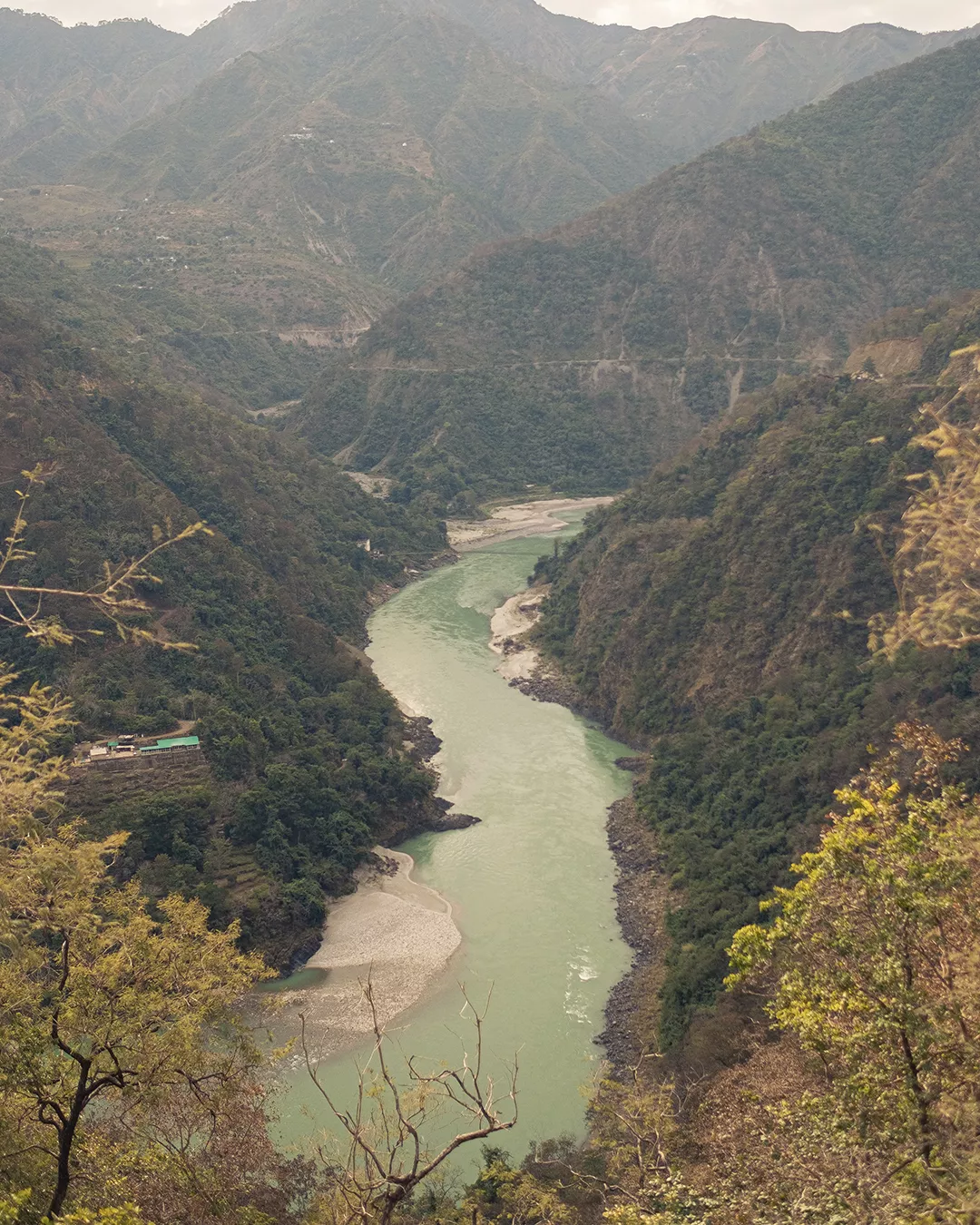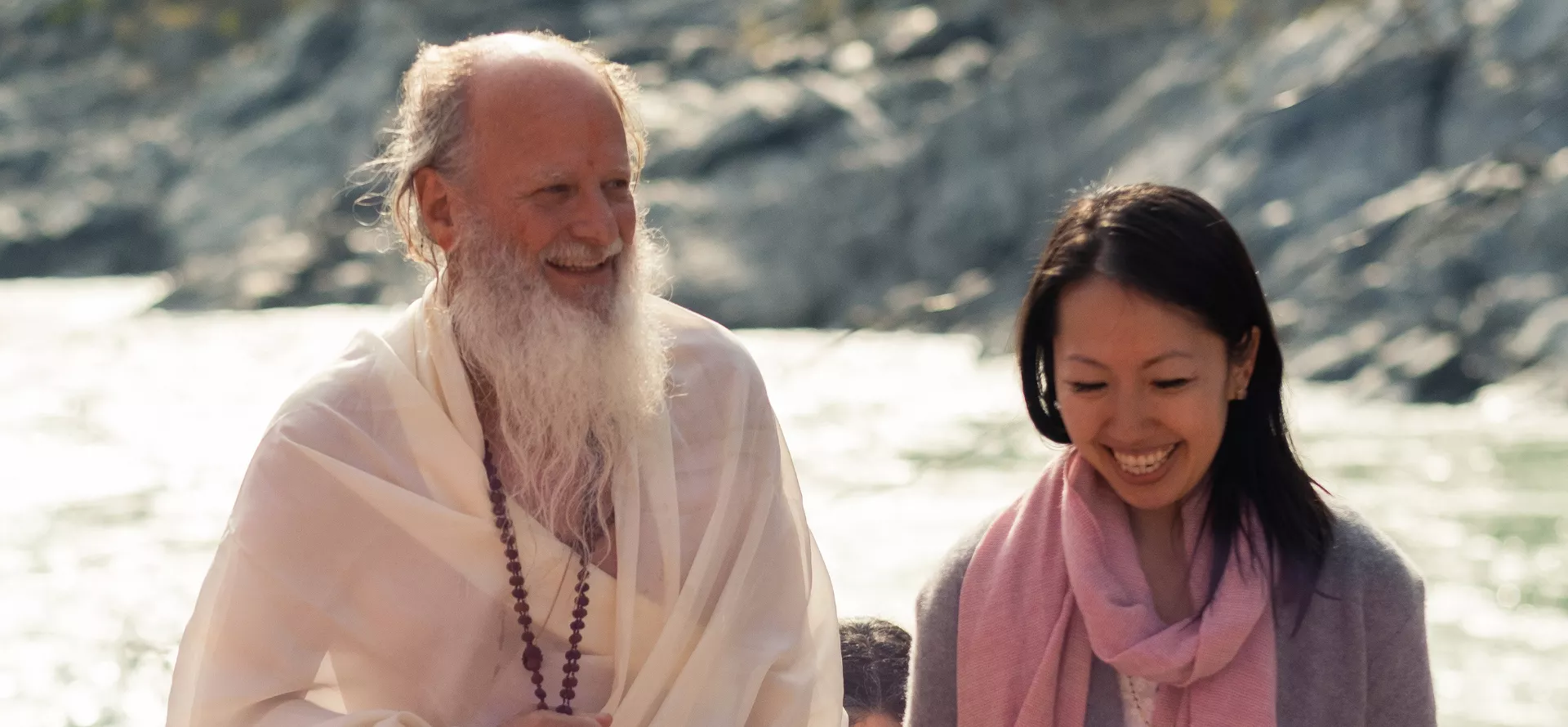Vedic Meditation vs Transcendental Meditation: What’s the Difference?
From time to time, I am asked about the difference between Vedic Meditation and Transcendental Meditation. Whether you are medi-curious and looking to decide between the two, or are already practicing Vedic Meditation or Transcendental Meditation and am wondering, “Is Vedic Meditation the same as Transcendental Meditation?” this article will help you better understand the similarities and differences between the two meditation styles.

Vedic Meditation and Transcendental Meditation’s Origin Story: Maharishi Mahesh Yogi
Vedic Meditation and Transcendental Meditation both have their origin stories in Maharishi Mahesh Yogi, the great Indian guru who, starting in the 1950s, began teaching an ancient form of meditation worldwide.
The mantra-based meditation that Maharishi taught was called a few different names throughout the beginning years, including “Deep Meditation” and “Deep Transcendental Meditation”. Maharishi ultimately settled on the name Transcendental Meditation.
Maharishi also referenced other terms to describe his meditation program such as “The Science of Creative Intelligence,” and the “Maharishi Technology of the Unified Field”. Those names didn’t roll off the tongue as easily, however, they are indicative of the profound and powerful effects of the meditation practice that he taught to millions of students around the world.
Maharishi’s Legacy
In the 53 years that Maharishi taught meditation in India and worldwide, he mentored many of his teachers with great knowledge to become masters and luminaries themselves.
My teacher, Thom Knoles, was one of his students who not only was one of the most successful teachers within the Transcendental Meditation organization but was also a personal assistant to Maharishi for over 25 years. Many times, Maharishi entrusted Thom to serve as his personal envoy to build schools in developing countries, start meditation programs in maximum security prisons all over the world, and pass on messages to presidents and dictators alike, many times aiding in the resolution of a hot geopolitical moment.
Thom is no longer a part of Transcendental Meditation and does not call what he teaches Transcendental Meditation.
Thom continues to teach the same technique that Maharishi trained him to teach under the name Vedic Meditation. And having trained with Thom, I also teach the same technique that Maharishi trained Thom to teach under the name Vedic Meditation.

Start your Meditation Journey Today
ATTEND A FREE INTRO TALKVedic Meditation vs Transcendental Meditation Characteristics: What’s Similar
It’s important to note that there are similar characteristics between Vedic Meditation and Transcendental Meditation.
Here are the key similarities:
- Vedic Meditation and Transcendental Meditation are both mantra-based meditation techniques that use a special type of mantra called a bija mantra. Bija is the Sanskrit word for seed form.
- Vedic Meditation and Transcendental Meditation both have courses that take place over 4 consecutive days, between 60-90 minutes each day.
- Each new student of both Vedic Meditation and Transcendental Meditation receives a mantra that is personalized to them.
Difference between Vedic Meditation and Transcendental Meditation
With a common origin, and those key similarities, there are some substantial differences between these types of meditation. Students who have taken both courses have shared with me how they see Vedic Meditation vs. Transcendental Meditation. There are three main differences that are commonly discussed.

In-Person (Vedic Meditation) vs. Online (Transcendental Meditation)
One key difference is that in Vedic Meditation, all four days of the course take place in person with an expert teacher. This is the way that Maharishi had always taught meditation.
My students tell me that Transcendental Meditation offers only the first day of the course in person. The rest of the sessions take place in a pre-recorded format and over Zoom.
And for me, now going on my seventh year of teaching Vedic Meditation, it’s clearer than ever that the best and most effective way to learn meditation is through a high-touch, in-person course format.
Vedic Meditation is a technique that we’ll be practicing twice daily, and it’s essential to receive the most personalized, tailored instruction possible to get the most out of the course. From my perspective, having in-person access to your teacher for all four days in-person is invaluable.
Personal Stories, Tailored Teaching
The second key difference I hear often is the unique and personal touch of a Vedic Meditation class and our Introductory Talks.
Thom has trained hundreds of Vedic Meditation teachers over the last 20 years, and I teach in the exact same way that Maharishi trained his teachers to teach.
Each teacher brings to the course of instruction different life experiences and ways of conveying the course materials that make every teacher unique and special.
This personalization of the course, while keeping the purity of the teaching unchanged, is one of the biggest differentiators of Vedic Meditation vs Transcendental Meditation.
You’ll learn live from an instructor, and not through pre-recorded videos from someone else.
And, when you have a question, you won’t need to hit pause on a video and write down your question. You can simply ask your question directly to the teacher sitting in front of you and have your curiosity fully satisfied.
Different Communities and Advanced Training Opportunities
Once you’ve completed your Vedic Meditation or Transcendental Meditation course, you’ll join a community of meditators to continue on with group meditations and other events and knowledge courses.
Our community vibes for Vedic Meditation vs Transcendental Meditation feel very different. Many students share that Vedic Meditation feels welcoming, organic, and less institutionalized. Teachers of Vedic Meditation don’t generally give off a corporate vibe, but one of opening up our homes to our students whenever they wish to follow up or join our free follow-up events.
Vedic Meditation teachers also host weekly group meditations that are free for all graduates of their courses.
Also, once you complete a Vedic Meditation course, you’re eligible to join any of my teacher Thom Knoles’ world-renowned courses on how to live to your fullest potential through an understanding of Vedic knowledge and philosophy. These courses are only offered within Vedic Meditation communities, and they are not to be missed.

Vedic Meditation or Transcendental Meditation: Which One Should You Choose?
Here are the questions I always recommend a new student ask themselves before deciding between Vedic Meditation vs Transcendental Meditation:
- Which teacher do you resonate with more? Which one do you vibe with?
- What does the ongoing programming look like with the teacher? Do you feel like you’ll be well supported after you graduate?
- Which community do you see growing with in the future?
If you have any additional questions that haven’t been answered in this article, I’m here to answer them. Sign up for an Introductory Talk, and I’ll be happy to share my thoughts. Learn more by checking out the latest Vedic Meditation news and frequently asked questions.






